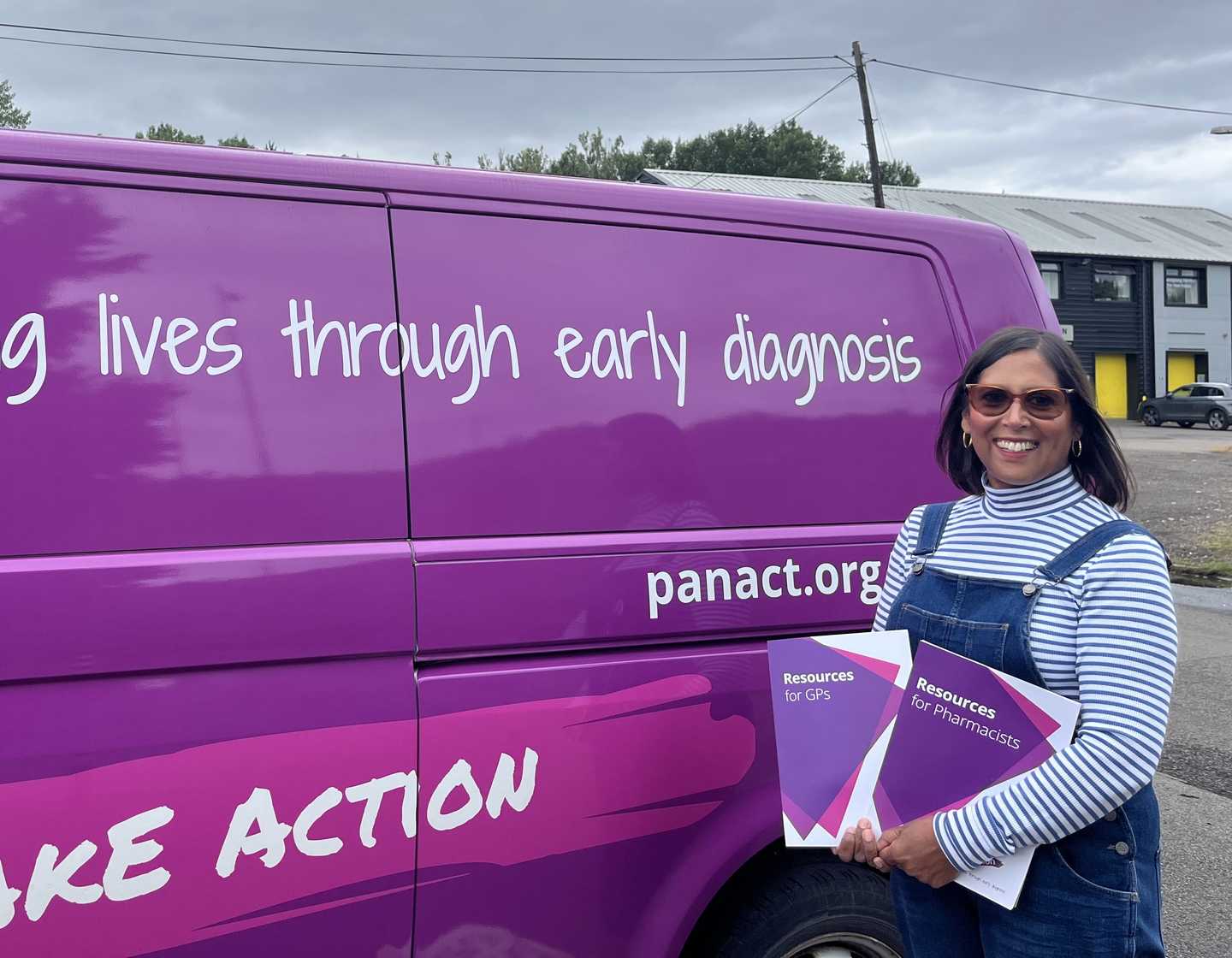Resources for GPs
Resources for GPs
Pancreatic cancer is a difficult disease to diagnose. It often presents late and with vague or non-specific symptoms. The resources provided here will raise your awareness of pancreatic cancer and provide resources of your practice and patients to support them throughout their journey.
On this page you will find information about: e-learning , resource packs, NICE diagnostic and referral guidelines, EMIS risk tool, GP seminar and how to stay in touch.
GP resource pack
We have created a free pack specifically for GP’s with a range of free resources including information on our free RCGP accredited e-learning module, as well as diagnostic guidelines and a symptom diary for patients.
GP resource pack
CPD training and e-learning
Pancreatic Cancer Action is the first UK charity to work with the Royal College of General Practitioners (RCGP) to develop free online training and CPD modules on pancreatic cancer.
You will be awarded Continuing Professional Development (CPD) credits for taking part in the course and though you need to register yourself, you do not need to be a RCGP member. The module is based on a video case study format and will allow you to see a variety of disease presentations, both typical and atypical and responses.
GP seminars at your practice
Would you like to arrange a pancreatic cancer seminar for your practice or local clinicians?
Our expert healthcare team can deliver a bespoke seminar or talk on early detection, referral pathways, and patient support.
If you would like to arrange a seminar for your GP practice or for other clinicians in your area, please email us at enquiries@panact.org or call 0303 0404 1770.
Pancreatic cancer referral
Refer people using a suspected cancer referral (for an appointment within 2 weeks) for pancreatic cancer if they are aged over 40 and have new jaundice.
Consider an urgent direct access CT scan (to be performed within 2 weeks), or an urgent ultrasound scan if CT is unavailable, to assess for pancreatic cancer in people aged 60 and over with weight loss and any of the following symptoms.
Symptoms
- Diarrhoea
- Back pain
- Abdominal pain
- Nausea
- Vomiting
- Constipation
- New-onset diabetes
Pancreatic cancer: A diagnostic guide for GPs
PDF140.7kb
NICE referral guidelines
To support GPs in making accurate and timely diagnoses, we provide access to the latest NICE (National Institute for Health and Care Excellence) guidelines.
These evidence-based recommendations help streamline diagnostic pathways, improve referral accuracy, and enhance patient outcomes.
Below are key NICE guidelines relevant to primary care:
- NG17 - Type 1 Diabetes: Diagnosis and Management. (Last updated August 2022)
This guideline offers a comprehensive approach to diagnosing and managing type 1 diabetes, including early symptoms, diagnostic tests, and long-term patient care strategies. - NG85 - Pancreatic Cancer in Adults: Diagnosis and Management
Provides best-practice recommendations for identifying, staging, and managing pancreatic cancer, focusing on early detection, appropriate imaging, and treatment pathways. - NG12 - Suspected Cancer: Recognition and Referral
A crucial guideline outlining symptom-based referral criteria for suspected cancer cases, helping GPs make urgent referrals for diagnostic testing and specialist review.
Pancreatic Cancer Patient Journey
Discover the pancreatic cancer patient journey. from early symptoms to diagnosis, treatment options and support. Get guidance and resources for healthcare professionals, for both you and your patient.
Read more
